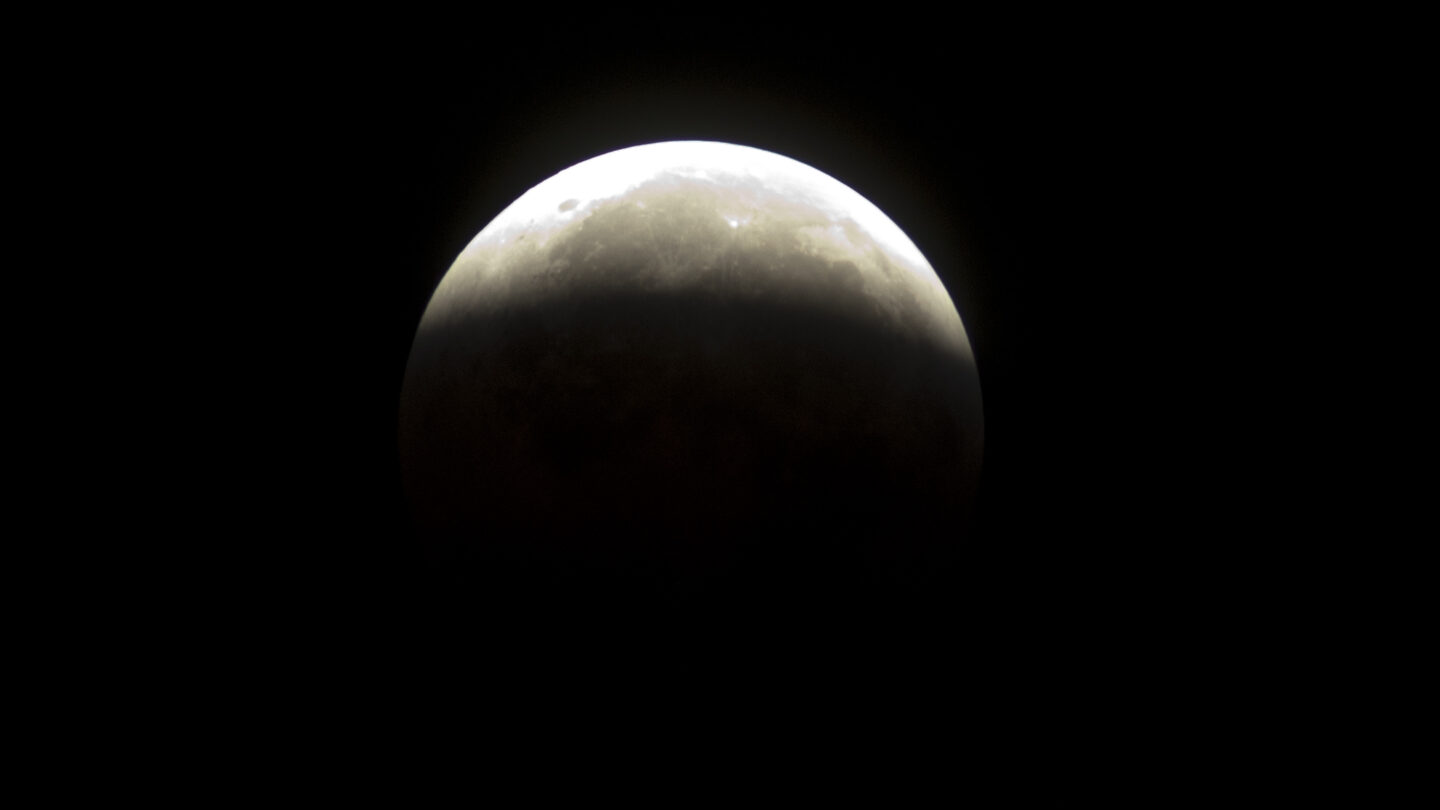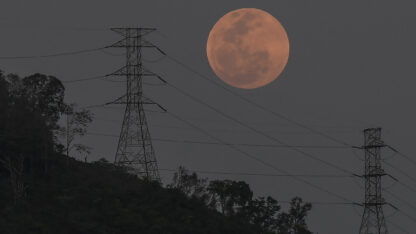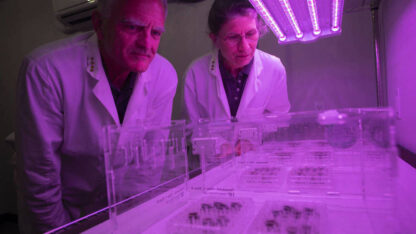A total lunar eclipse will be visible in Atlanta this weekend, as long as it isn’t too cloudy Sunday night.
The eclipse starts just before 10:30 pm Sunday and begins totality around 11:30.
It’s not complicated to watch a lunar eclipse. Unlike with solar eclipses, no eye protection is needed to look right at it.
“Lunar eclipses are great,” says David Dundee, director of education and the astronomer at the Tellus Science Museum in Cartersville. “You can just walk out in your backyard and look up and there it is.”
During totality, the moon won’t be completely dark. Instead, it will look orange or red. That’s because of the Earth’s atmosphere.
Video credit: NASA’s Scientific Visualization Studio
“It will bend some of the light,” Dundee says. “The light that bends the best are the longer wavelengths of light or the red colors. And so the Earth’s shadow is actually filled with red, or orange light.”
Anyone who wants to see the eclipse can just go outside and look up. With a small telescope or binoculars, eclipse watchers can see more details as the Earth’s shadow progresses across the moon’s craters.
“This one is going to be beautiful if the clouds cooperate,” Dundee says. “It’ll be high overhead.”
A couple local telescopes will open late, so people can get an even bigger view. The Tellus Science Museum is having an eclipse watch party, rain or shine. Fernbank Science Center, in DeKalb County, will be open if the weather is good.
“I get asked by the general public, ‘Do eclipses affect human behavior?’” Dundee says. “I always say, ‘Why yes, it causes people to get up in the middle of the night and go visit science museums.’”
Even if it is cloudy in Atlanta, you can still watch the eclipse online; NASA will be streaming it.
While solar eclipses are only visible in a small area, lunar eclipses cover big parts of the globe. People in most of North America, all of South America, most of Africa and Western Europe will be able to see totality during this eclipse.









